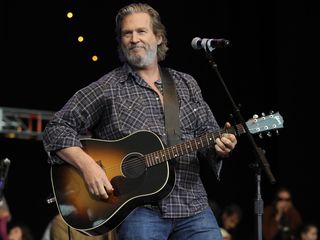
Jeff Bridges: the 10 records that changed my life
You've got to hand it to Jeff Bridges. When it comes to scheduling his summer activities, he clearly knows how to save the best for last. This Friday (August 15), his 20-year passion project, a film adaptation of the beloved sci-fi novel The Giver opens (Bridges stars with Meryl Streep and also serves as producer). And a week later, Bridges will hit the road with his country-rock band, The Abiders.
The five-piece group, named in reference to one of the many key lines from Bridges' 1998 mega-cult hit The Big Lebowski, features the actor-musician on vocals, guitar and keyboards, as well as Chris Pelonis (guitar, keys, vocals), Tom Lackner (drums), Randy Tico (upright bass) and Bill Flores (pedal steel). Their 11-date tour, which kicks off August 22 in Hammond, Indiana, will mark the band's first swing through the Midwest and East Coast.
“This will be a fun new experience," Bridges tells MusicRadar. "I’ve never done a tour of the Midwest and East Coast before, so I’m definitely looking forward to it. The only other time I’ve played New York was during the Speaking Clock Tour that my buddy T Bone Burnett put together a few years ago. I was on stage with Leon Russell, Elton John, Elvis Costello and T Bone, so you know, that was pretty terrific."
Since his Oscar-winning turn as the down-and-out country singer Bad Blake in 2009's Crazy Heart, making music has occupied more of Bridges' time – in 2011, he released an acclaimed self-titled album (which followed his solo debut, Be Here Soon, released in 2000). But while the public may perceive his second career behind a microphone as something of a recent moonlighting pursuit, in reality he's been playing music his whole life.
“It's something that's always been there for me, no matter what," Bridges says. "And occasionally, film and music come together in terrific ways. The most musical movie for me, of course, was Crazy Heart. The Fabulous Baker Boys, that's another favorite. I’ve sung little bits here and there, played guitar a little in certain movies. I find that I use different creative aspects of my life in films. And music's also a great way to hang with different people on the set. You wind up discovering a lot of other actors who play guitar. Playing together and getting to know one another through music is such a nice way to connect."
As far as bonding experiences go, it'll be hard to top the one that Bridges will share with his opening artist on the tour: It's his daughter Jessie. "That’s gonna be so cool," Bridges enthuses. "Jessie was my assistant on three movies, so we got to hang out in that way, and now we get to do this together. Over the last few years, she’s been opening for me and playing with the band. We have a fantastic time.”
On the following pages, Bridges, who is prepping a live album of Abiders shows, weighs in on the "10 records that changed his life." For a list of tour dates for Jeff Bridges And The Abiders, visit this link.
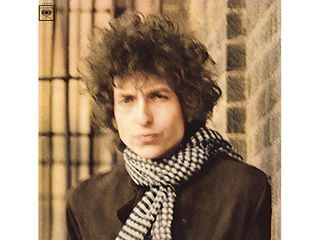
Bob Dylan - Blonde On Blonde (1966)
“Bob Dylan's a lot to take in. Man, I just love Blonde On Blonde. What an amazing album all the way through. Of course, I'm into a lot all of his records, really. I’ve been following Dylan from the beginning, all the folk stuff and then on to the electric stuff, Highway 61 Revisited, and everything else. It’s kind of mind-boggling.
“I’m really excited about the new Basement Tapes that are coming up soon. I was just getting my picture taken by Sam Jones, who is making a documentary about it. So it’ll be a film about the new album, but it’ll give us some info on the original Basement Tapes, as well. Can't wait for that.”
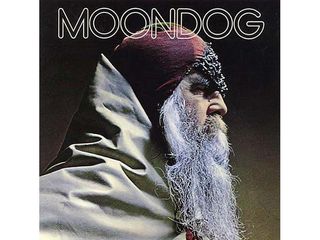
Moondog - Moondog (1969)
"Moondog était un personnage vraiment particulier. C'était un aveugle qui s'habillait en Viking et se tenait au coin de la même rue à New York. Il me semble que c'était au coin de 60th Street et Avenue Of The Americas.
“I remember seeing him when I was a little kid, probably about 11 or 12. He’d be across from the Hilton Hotel, passing out little leaflets, like, ‘Come to my concert.’ Through the years, whenever I’d come to New York, he was there, rain or shine – so now I’m talking when I was between the ages of 12 and 25.
“One day I went into a record store, and I saw his picture on an album cover. I picked it up and looked at the liner notes, and who do you think wrote them? Leonard Bernstein! I bought the album and listened to it. It’s very avant-garde, moderne music – pretty fascinating. He’d built all of his own instruments and did his own thing. I dig so much of his stuff. T Bone put some of his music in The Big Lebowski.”
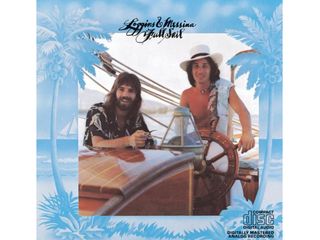
Loggins And Messina - Full Sail (1976)
“Full Sail scored my love affair with my wife back in the ‘70s. We met in 1974 in Montana, when I was shooting a movie called Rancho Deluxe. Shortly after that movie, I went back up to Montana, picked her up and we drove back to LA. We’ve been together ever since. This record was kind of the soundtrack to us falling in love.
“Oh, and here's something funny: We ended up buying Kenny Loggins’ house. That kind of puts the cherry on top of the whole thing.”
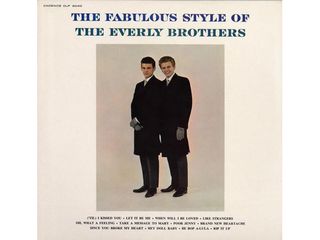
The Everly Brothers - The Fabulous Style Of The Everly Brothers (1960)
“My brother, Beau, is eight years older than me, so a lot of the music that I grew up listening to is stuff that he was into first – Chuck Berry, Buddy Holly, and certainly The Everly Brothers.
“They put out so many brilliant songs and albums. I remember Songs Our Daddy Taught Us as having a lot of great cuts. The Fabulous Style is, I think, a reprint – I’m not sure what it was called originally, but it’s got some of my favorites. I always loved the guitar sound on the song Claudette.”
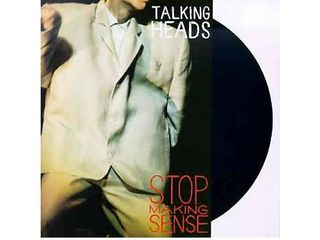
Talking Heads - Stop Making Sense (1984)
“The Talking Heads were just phenomenal. They affected me in a similar way to The Beatles; they were so fresh and different, and, of course, their songs were like ear candy.
“The film that Jonathan Demme made of their show blew me away. I saw the band play in Los Angeles on that tour – it was either the Greek Theatre or the Hollywood Bowl; I’m not sure which – and I loved every minute of it. Everybody set the bar really high with this one. It kind of changed the way concert films could be presented."
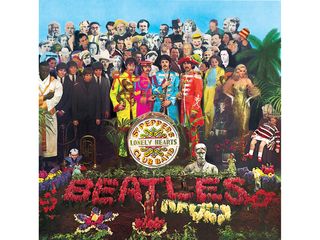
The Beatles - Sgt. Pepper's Lonely Hearts Club Band (1967)
“When I was a teenager, The Beatles were coming out with new songs all the time. At one point, it was like there was a different song every week. And the B-sides were as cool as the A-sides – it was incredible.
“They put out album after album too, but suddenly the gap between them got longer than usual. We were all expecting something from them, and when they finally put out Sgt. Pepper, it was unlike anything we’d ever heard before – and unlike anything The Beatles had ever done before. A phenomenal record and achievement.”
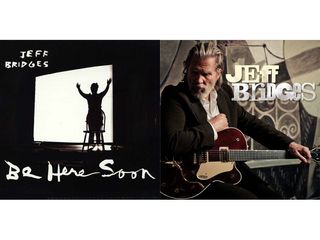
Jeff Bridges - Be Here Soon (2000) and Jeff Bridges (2011)
“They obviously changed my life, both for different reasons. With the first one, it was a matter of different things coming together in a certain way. I’d moved up to Santa Barbara and met my dear friend Chris Pelonis, who produced the record with Michael McDonald and myself.
“I wanted to turn this old garage into a recording studio, and so Chris got involved with that – he does sound design. He asked me if I played music, and I said yes, and that’s when he said, ‘Oh, you should meet my buddy Michael McDonald.’ Before you knew it, we were making a record and forming a label, Ramp Records.
"And making the second record was just an altogether great experience. Working with my friend T Bone and everybody was remarkable.”
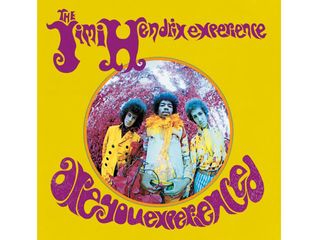
The Jimi Hendrix Experience - Are You Experienced (1967)
“Everybody wanted to play like Jimi Hendrix after this came out – or tried to. Like Sgt. Pepper, it was one of those records that sort of changed everything. It’s funny that they both came out around the same time.
“I love the version of Sgt. Pepper that Jimi did in England a couple of days after The Beatles’ record came out. I think The Beatles were there when he came out and played it on stage and he blew everybody’s minds.”
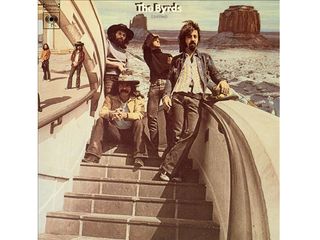
The Byrds - Untitled (1970)
“This is a double album – half of it's live and the other half is in the studio. And picking this one, I certainly don't mean to slight David Crosby [who had been fired from the band in 1967]. I’m a huge fan of his, and I love his stuff with The Byrds. He’s a dear friend.
“Something about this combination of the band really got to me. Hearing Clarence White’s guitar picking, man, I just loved it. The Byrds were always an important band to me. Their earlier stuff, when they were covering Dylan, was fantastic, as were the records that came later.”
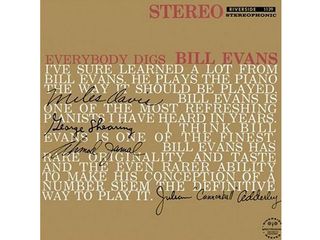
Bill Evans - Everybody Digs Bill Evans (1959)
“My character in The Fabulous Baker Boys idolized Bill Evans. I knew Bill’s music somewhat before making the film – I dug Kind Of Blue, the Miles Davis album that Bill is on. But I got so much more into jazz after the Baker Boys experience.
“[Film composer] Dave Grusen and the director, Steve Kloves, are such jazz fans, and they turned me on to so many great records, including Everybody Digs Bill Evans. I think it was something of Bill’s coming out as a bandleader. There’s a song on the record called Peace Piece that I can play a sort of bastardized version of. It’s such a beautiful song.”

Joe is a freelance journalist who has, over the past few decades, interviewed hundreds of guitarists for Guitar World, Guitar Player, MusicRadar and Classic Rock. He is also a former editor of Guitar World, contributing writer for Guitar Aficionado and VP of A&R for Island Records. He’s an enthusiastic guitarist, but he’s nowhere near the likes of the people he interviews. Surprisingly, his skills are more suited to the drums. If you need a drummer for your Beatles tribute band, look him up.

"It may have bothered him that people didn’t recognise his guitar virtuosity, which might be why the song devotes so much space to his shredding": A music professor breaks down the theory behind Prince's When Doves Cry

“It didn’t even represent what we were doing. Even the guitar solo has no business being in that song”: Gwen Stefani on the No Doubt song that “changed everything” after it became their biggest hit

"It may have bothered him that people didn’t recognise his guitar virtuosity, which might be why the song devotes so much space to his shredding": A music professor breaks down the theory behind Prince's When Doves Cry

“It didn’t even represent what we were doing. Even the guitar solo has no business being in that song”: Gwen Stefani on the No Doubt song that “changed everything” after it became their biggest hit
Most Popular








